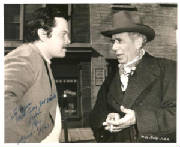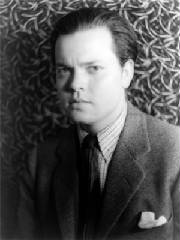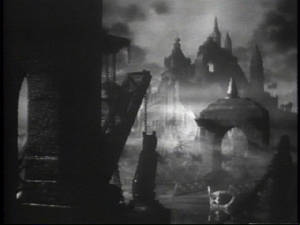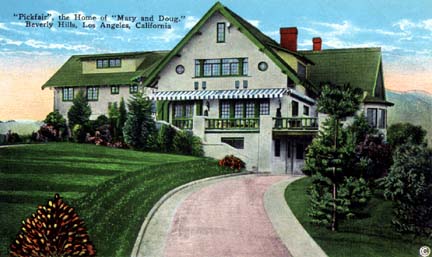|
Orson Welles by Joseph Cotton
| Orson Welles and Joseph Cotten in |
|
|
| Citizen Kane |
Joseph Cotton writes about a
radio studio
encounter he had with Orson Welles and
Ray Collins in his autobiography,
Vanity Will Get You Somewhere
(Avon Books, New York,
1988) on page 33:
We [Joseph Cotten and Orson Welles] were rehearsing for one of CBS's School
of the Air series (this one was about rubber trees in the jungle), when a couple of the lines suddenly took on a
double meaning and very rude connotations. In stead of biting our tongues and ignoring the moment, Orson and I
lost control and broke int choirboy giggles. Knowles [Entrekin] stopped the rehearsal and warned us. He used words
like schoolchildren, nonprofessional, and bad manners.
'I see nothing funny about the line 'barrels and barrels of pith,'
" he said. Thick silence in Studio Two. Eyes of all actors remained glued to their scripts. Knowles continued,
"Will Mr. Cotton or Mr. Welles please tell us what is funny about the line 'barrels and barrels of pith' so we may all join
in with their laughter?"
The atmosphere of the studio made Grant's Tomb seem like a boiler
factory, and then Knowles made the mistake of the day. "And now, ladies and gentlemen, if indeed that is what we all
are"--glares at you know who--"we will now go back to the beginning of the scene."
| Orson Welles and Ray Collins |

|
| The Magnificient Ambersons (1942) |
Back
to the beginning we did go, and when Ray Collins read the line, "Barrels and barrels of pith," there was an explosion of laughter
in Studio Two at CBS that would have rocked the very timbers of Madison Square Garden. Ray Collins himself never finished
the word pith. His manuscript simply slid from his helpless fingers. Most of the other actors doubled
over, te sound man hid behind his bulky equipment, the orchestra sought refuge in the shadow the bass fiddle, ad the two culprits
fled the building in hysterical tears.
After a few days, when Knowles's face had lost its angry crimson color,
he allowed it to smile as he shook hands and accepted apologies.
It was a damaging experience for Orson and me, however, as we were
now considered an unreliable influence and were never cast in parts on the same show. It was not until some years later
when CBS gave Orson his own show that we worked together on the air again.
Reprinted from The Old Movie Blog, September 21, 2005.
CITIZEN
KANE (1941)
| Orson Welles |

|
| Director, Writer, and Star |
Pauline Kael wrote Raising Kane (Limelight
Editions, New York, 1984, page 17) about Orson Welles' making his classic Citizen Kane.
She quotes William Alland's discription of the process in a magazineinterview of the Directors Guild
of America:
There was one scene which stands out above all
others in my memory: that was the one in which Orson Broke up the roomful of furniture in a rage. Orson never
liked himself as an actor. He had the idea that he should have been feeling more, that he intellectualized too much
and never achieved the emotion of losing himself in a part.
| Xanadu |

|
| Citizen Kane (1941) |
When he came to the furniture-breaking
scene, he set up four cameras, because he obviously couldn't do the scene many times. He did the scene just twice, and
each time he trew himself into the action with a terror I had never seen in him. It was absolutely electric; you felt
as if you were in the presence of a man coming apart.
Orson staggered out of the set with his hads bleeding and his face flushed. He
almost swooned, yet he was exultant. "I really felt it," he exclaimed. "I really felt it!"
Strangely, that scene didn't have the same power when it appeared on the screen. It
might have been how it was cut, or because there hadn't been close-inshots to depict his rage. The scend in the picture
was only a mild reflection of what I had witnessed on that movie stage.
~ ~ ~ ~
Orson Weles would probaby have to spray
blood from his hands all over the set to get
reactions or be called a movie-maker today.
Sad, isn't it?
Reprinted from September 18, 2005.
|

